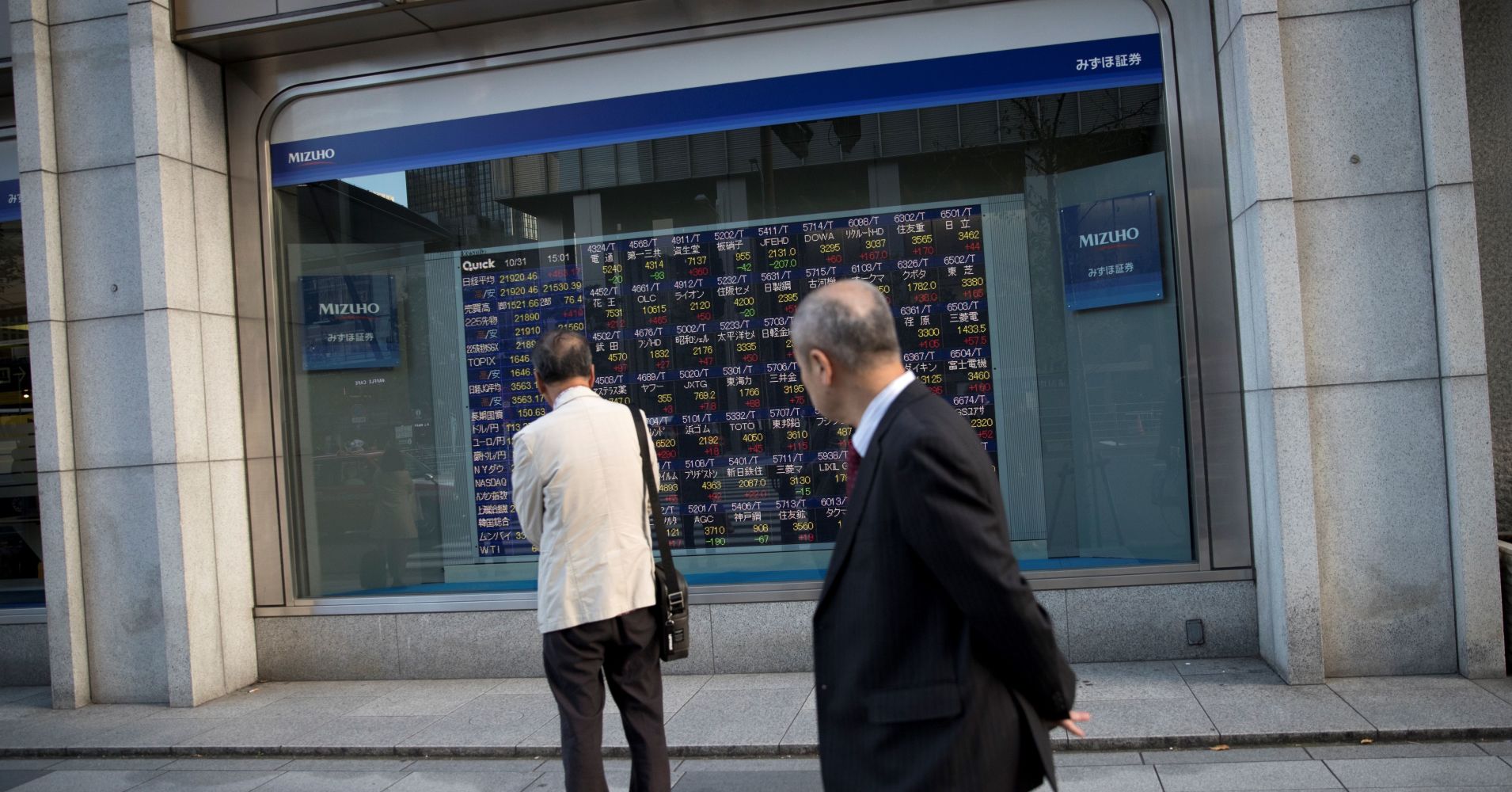
Asian stocks were mixed on Tuesday morning as investors looked to the U.S. midterm elections set for later in the day.
The Greater China markets were in largely negative territory during early trade, with the Shanghai composite dipping 0.26 percent and the Shenzhen composite falling 0.635 percent. Meanwhile, Hong Kong’s Hang Seng index was essentially flat.
Japan’s Nikkei 225 rose by 0.84 percent in morning trade and the Topix index saw gains of 0.89 percent.
Shares of conglomerate Softbank fell into negative territory after having earlier seen gains, trading around 0.3 percent lower in the morning despite earlier reporting a profit surge for the second quarter of 2018 helped by higher valuations on high-tech bets. The conglomerate’s CEO, Masayoshi Son, said on Monday that “there may be some impact” on its Saudi-backed Vision Fund following the killing of Saudi journalist Jamal Khashoggi
The Japanese tech investment giant has poured billions into start-ups in Silicon Valley and around the world through this investment fund.
The ASX 200 was 0.67 percent higher in afternoon trade, with most sectors seeing gains. The energy and materials sectors were up 1.37 and 1.15 percent, respectively, as the heavily weighted financial subindex advanced 0.7 percent.
The Reserve Bank of Australia is due to announce its interest rate decision at 11:30 a.m. HK/SIN.
“The main event risk for the Asian session is the Reserve Bank of Australia’s latest Cash Rate Announcement. However, once again there is close to zero chance of a rate change and local investors looking to make money today will probably be (focusing) more on the Melbourne Cup which takes place 30 mins after the announcement,” said Rakuten Securities Australia in a morning note, in reference to an upcoming horse race.
“Despite this situation, market participants will be paying close attention to the accompanying rate statement for any subtle changes in the forecast from the bank and this could add some volatility to the currency at the very least,” the note said.
Meanwhile, South Korea’s Kospi saw a gain of 0.37 percent in morning trade.
Overnight on Wall Street, the Dow Jones Industrial Average rose 190.87 points to close at 25,461.70 while the S&P 500 advanced 0.6 percent to 2,738.31. The Nasdaq Composite, however, bucked the positive trend to slip 0.4 percent to 7,328.85 by the closing bell.
The stock moves stateside came ahead of the U.S. midterm elections that are scheduled for Tuesday, which could send ripples throughout capital markets.
Democrats are expected to regain control of the House while Republicans hold on to a slim majority in the Senate. This outcome is largely seen as positive for markets since, historically, U.S. stocks have posted solid gains during government gridlock.
If the GOP maintains a majority in both chambers, it could give stocks a short-term boost as it increases the likelihood of further tax cuts. Meanwhile, a so-called Democratic sweep could pressure stocks as it could lead to a reversal of some of the policies passed by the GOP to boost the economy in the near term.
The Democrats were leading with a 7 point advantage ahead of the contest, according to an NBC News/Wall Street Journal poll released Sunday.
“We think the biggest reaction would be if the Republicans retained control of both the House and Senate. If so, we can look forward to Trump going harder on trade, looser — still fiscal policy and even more vociferous attacks on the Fed. This is a likely initially (U.S. dollar) positive and hence an (Australian dollar) negative outcome,” Rodrigo Catril, a senior foreign exchange strategist at National Australia Bank, said in a morning note.
Meanwhile, some analysts are keeping an eye on the ongoing U.S.-China trade war with low expectations for any progress at the anticipated meeting between Presidents Donald Trump and Xi Jinping scheduled for the end of November.
The U.S. dollar index, which tracks the greenback against a basket of its peers, was at 96.350 after seeing earlier highs above 96.6.
“Historically, these elections do not have a significant or lasting impact on the dollar or the financial markets but this year, given the controversy surrounding this Administration, we could see a meaningful reaction,” Kathy Lien, managing director of foreign exchange strategy at BK Asset Management, said in a note, in reference to the upcoming U.S. midterms.
“The most bearish scenario for the dollar would be if the Democrats win both the House and Senate, in which case, we should see a very aggressive slide in the USD that takes EUR/USD to 1.15 and USD/JPY to 112,” Lien said.
The Euro was at $1.1406 in the morning of Asian trade. The Japanese yen was at 113.25 against the dollar following an earlier high around the 113 handle while the Australian dollar traded at $0.7207 after rising from levels above $0.718 yesterday.
— CNBC’s Fred Imbert and Ryan Browne, along with Reuters, contributed to this report.

